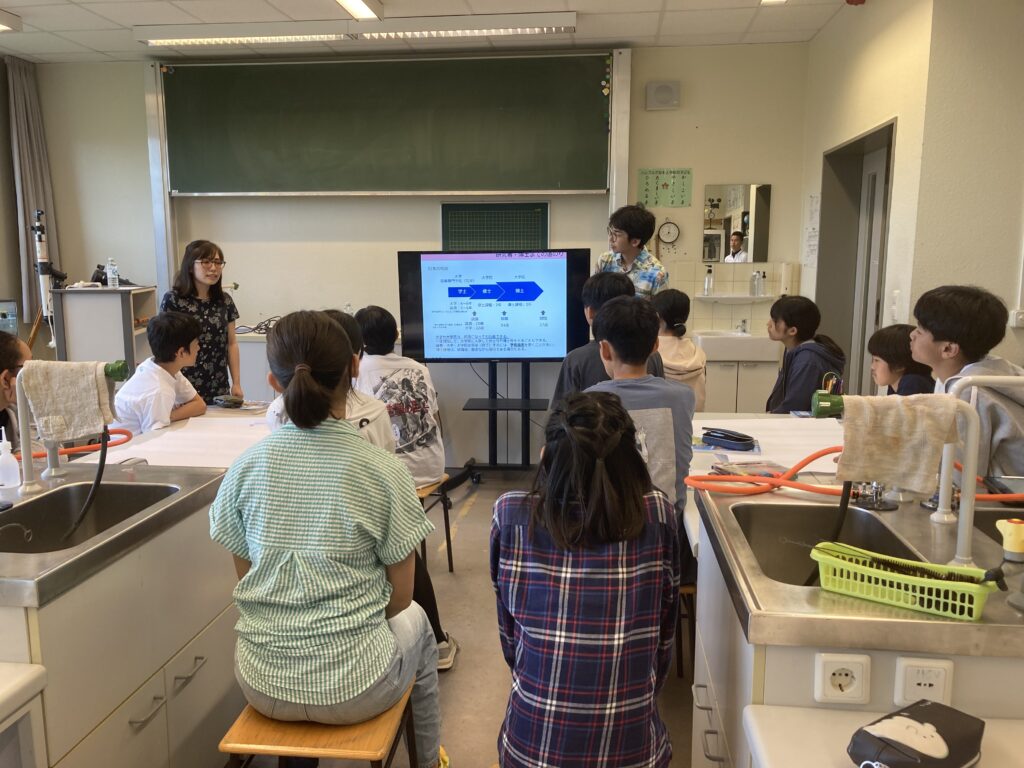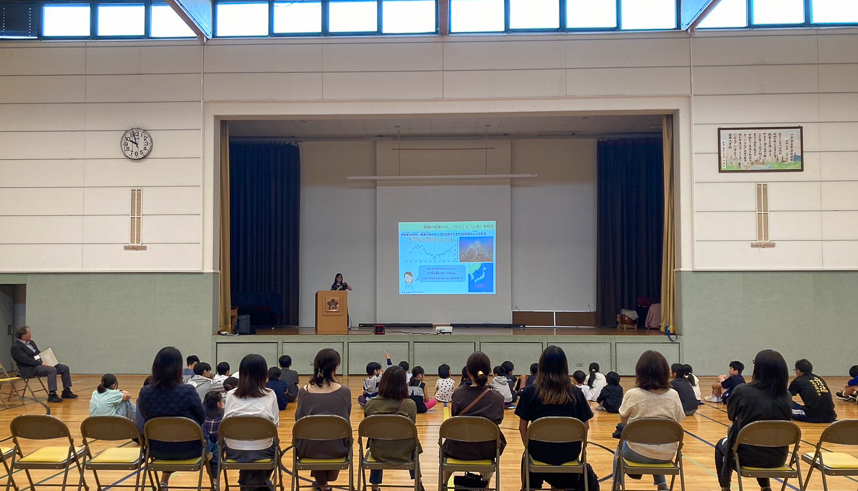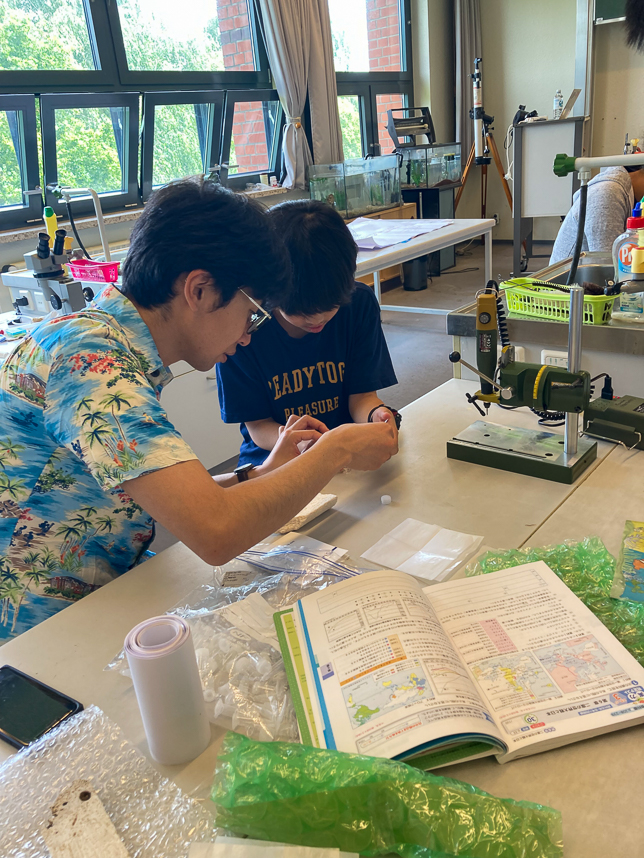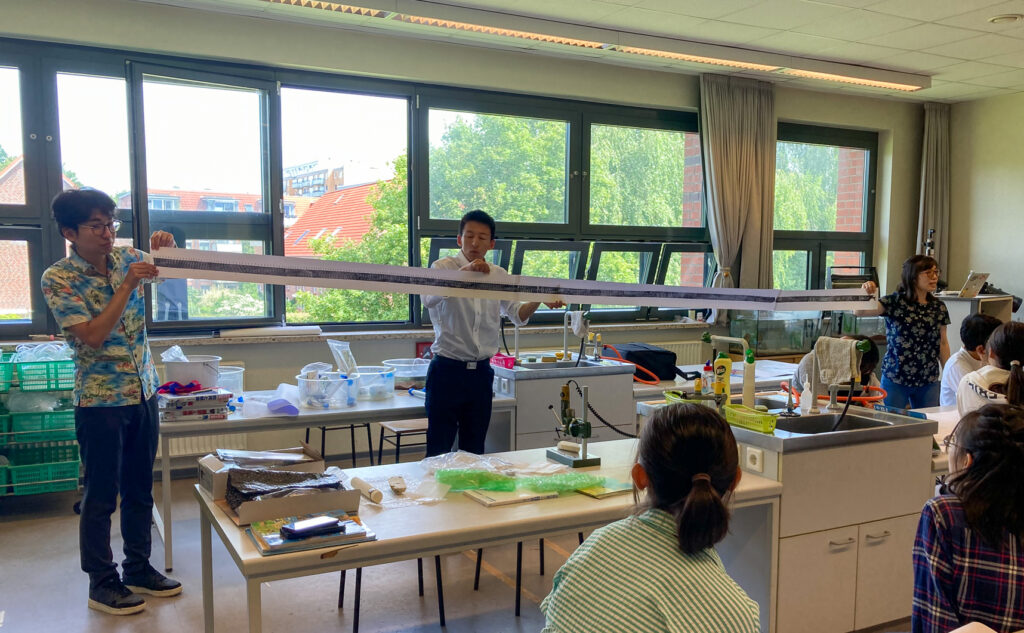Teaching future generations about coral reefs, and what we can learn about past, present and future climates from them is an important aspect of the work we are passionate about within the DFG Priority Programme ‘Tropical Climate Variability & Coral Reefs’ (SPP 2299). Recently two researchers within the programme were part of this with a special lecture for kids (8-15 ages) at the Japanese School in Hamburg last month.
The programme covered some exciting basics with a talk titled “What are corals? Insights from corals into the past, present, and future.” The group consisted of students ranging from 8-15, their parents and teachers with between 30-35 participants in total. Our researchers also enjoyed some quizzes and insightful discussions with questions like ‘What is a coral? Where do corals live? What’s going on coral reefs?’.


The second section was a career-based talk titled “What is a ‘PhD’? What does a ‘researcher’ do?” for older students aged 12-15. In this lecture, the breadth of the SPP 2299 programme was covered by Saori (Sally) Ito (Kiel University (CAU)) and all the students were surprised when they found out the scale of our whole programme! The students also got a brief introduction to the project TINBELT from Takaaki (Konabe) Watanabe (Kiel University (CAU)) (Kiel University (CAU)) focusing on the difference we can make in these regions.
Lastly, our researchers ran an interactive session titled “Today you are a researcher too!”. In this, the students got to experience some of the work that our researchers do on a regular basis. They covered;
1. How to ‘read’ the geochemical record?
Konabe taught them ‘how to read’ geochemical results based on his own publication (Watanabe et al. 2019, Geology). Konabe showed them an example dataset and asked them to answer a question. They discussed the background of the dataset and from there developed a hypothesis.
2. Let’s do some coral microsampling!
The students enjoyed microsampling using a hand drill. The students got to keep their powdered coral samples in Eppendorf tubes as souvenirs! 🙂


3. Make a historical calendar with annual coral bands
The participants made a 340 yrs original calendar with the Madagascar-Ifaty coral (see the photo, taken by a school teacher). This exercise usually takes a long time and unfortunately was not completed in our lecture because of the limited time, however, the students will get an opportunity to complete it in their daily class.
These sessions are designed to expose students to the breadth of different options available in marine geoscience, marine biology and climate sciences and hopefully, we met some future paleoclimatologists!
All images were used with the permission of the Japanische Schule in Hamburg and the permission of the students. Photo by S.I., T.W., Japanische Schule in Hamburg.
